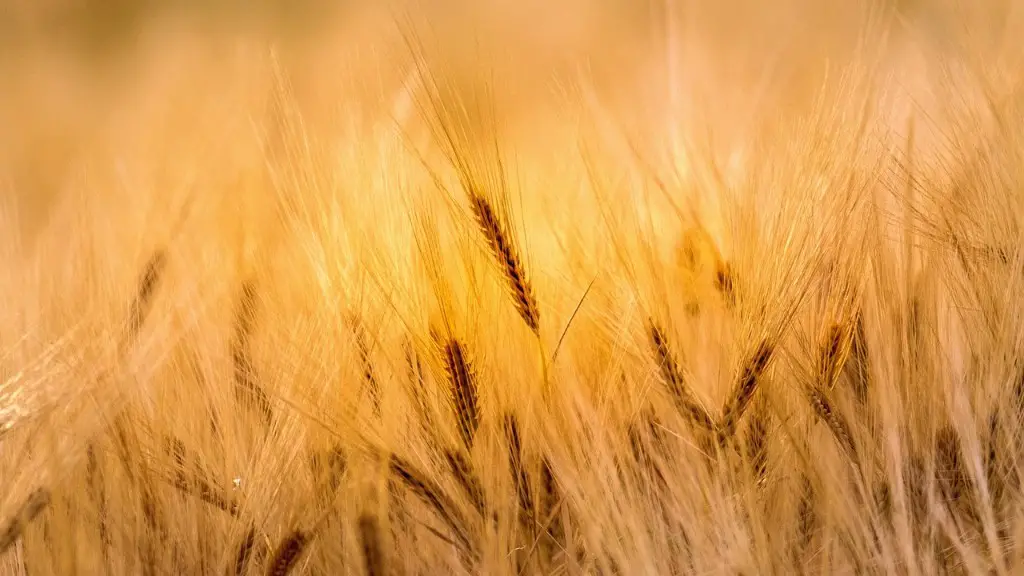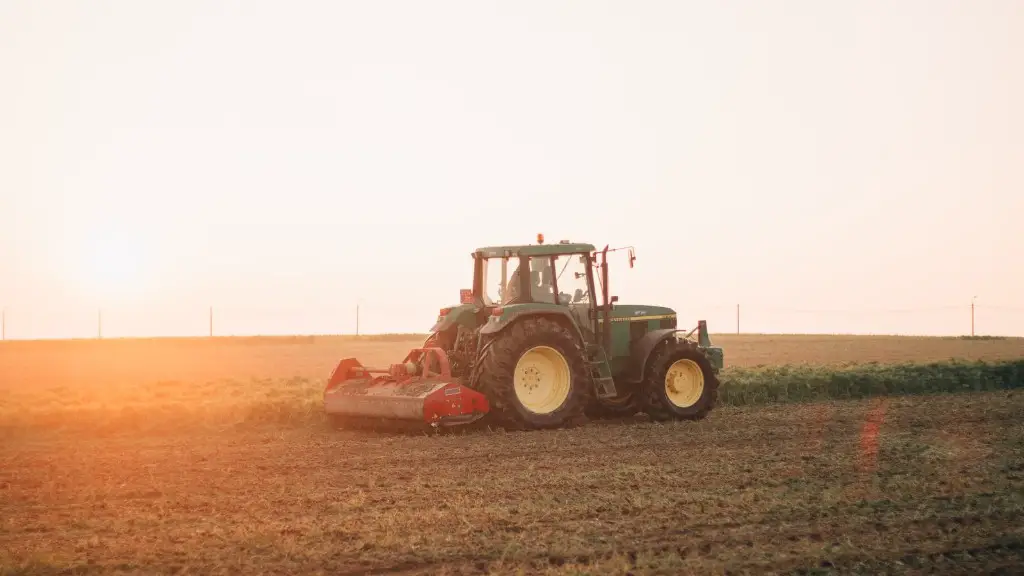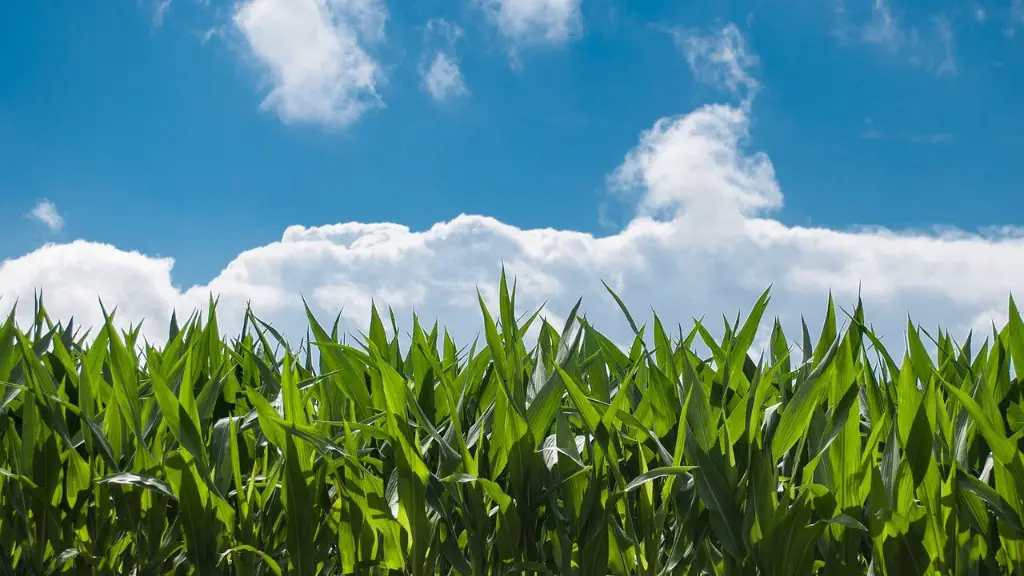Agriculture is an essential part of human life and animals play an important role in it. From helping in the production of food to providing inputs to other industries, animals offer a variety of functions and benefits. From pest control to soil conservation, animals can help with a range of agricultural activities and help to increase yields and quality of production. Overall, animals are an essential part of the agricultural cycle, without which the industry could not function fully.
Animals are used primarily in the production of food, with their dairy, meat, eggs and hides providing valuable resources for humans. Through regular animal husbandry and good animal welfare, farmers can often increase their yields of both food quality and quantity. Additionally, animals can also be used for transport, with their strength and endurance making them perfect for ploughing, tilling and other activities. They also help to strengthen soil, contribute nutrients to the environment, and contribute to soil quality.
Moreover, animals also help in pest control, with their defensive behaviors and natural predators keeping pests away from crops. Crop-eating birds are particularly significant here, as their consumption of pests can provide much better pest prevention and crop protection than mechanical or chemical options. Furthermore, animals also help to manage weeds, with their grazing preventing weed populations from overgrowing fields.
Animals also provide a range of other inputs to agriculture. Their manure is an important source of fertilizer, while their hide and leather are excellent sources of material for animal-related goods such as clothes, saddles, and harnesses. Additionally, animals also help to maintain soil fertility by increasing its organic matter content, and their grazing can also help to reduce the risk of soil erosion.
To conclude, animals provide a range of essential functions and benefits to the agricultural industry. From providing food, transport, and pest control to contributing to soil fertility and supporting other industries, animals are an important part of the agricultural cycle and are vital for the production of high-quality food.
Methods for Improving Animal Welfare in Agriculture
When it comes to livestock production, animal welfare is a key factor in the sustainability of any agricultural enterprise. Animal welfare is important in promoting animal health and helping to improve the quality of food, reduce losses, and increase yields. Therefore, it is essential that producers put measures in place to protect the welfare of their animals, as this will help to maximize the returns they receive from their livestock.
Improving animal welfare can take various forms, from providing better housing and nutrition to ensuring their health, minimizing stress, and minimizing their discomfort. Providing adequate housing for animals is key in the protection of their welfare, with good ventilation, shelter from the elements, and adequate space all helping to increase animal wellbeing. Nutrition is also important, with a balanced diet providing adequate energy and nutrients for growth, maintenance, and production. Furthermore, routine health checks can help to identify and treat diseases early, as well as reduce the risk of infection.
It is also important to minimize stress and discomfort in animals, with poorly designed handling practices, including those related to transport, being a major source of stress. Therefore, producers need to take steps to minimize this, such as providing appropriate rest periods, using low-stress handling techniques, and providing the right facilities, such as straw and comfortable beds, for transporting animals.
Finally, producers should also take steps to promote the humane treatment of animals, through the provision of humane handling tools, training of personnel, and promotion of humane handling practices. Additionally, encouraging good farming practices, such as minimum stocking densities, many be beneficial in helping to promote animal welfare.
The Benefits of Animal-based Agriculture
Animal-based agriculture can provide a range of benefits to producers, from increased yields and quality of food production to reduced inputs and costs of production. Animals provide nutrition, protein and energy, as well as providing materials for clothing, handicrafts and furniture. Additionally, their strong muscles, agility, and endurance make them excellent source of transport and labor for producers.
Animals can also provide important pest control. Crop-eating birds are especially significant in this regard, as their consumption of pests can greatly reduce the risks of pest damage to crops. Furthermore, animals can also help to reduce weed populations, as well as increase soil fertility by improving its organic matter content and mixing in essential nutrients.
Animals are also an excellent source of fodder and manure, which can provide additional inputs for agricultural production. Fodder provides an important nutritional supplement for animals, while manure can be used as fertilizer, helping to improve soil fertility and promote plant growth. Finally, animals can also provide additional income sources, as selling animal products, such as wool, hides and dairy, can help to diversify a producer’s income.
In conclusion, animal-based agriculture provides a range of important benefits for producers. From providing nutrition, inputs, transport and labor to providing pest control and additional income, animals can play an important role in the success of any agricultural production system.
The Role of Animal Products in Nutritional Security
Animal products play an important role in providing nutrition, protein, and energy for people around the world. With their high quality proteins and essential micronutrients, animal products are an important source of nutrition and are essential for good health. Additionally, animal-based foods can also provide essential vitamins and minerals that are essential for proper growth and development.
Animal products, such as meat, eggs, and dairy, can also help to reduce malnutrition and hunger. Through providing a sustainable and affordable source of high-quality protein and essential micronutrients, animal products can help to reduce the risks of micronutrient deficiencies, which are a major global health concern. Additionally, animal products can also improve dietary diversity, as they often provide different nutrients than those derived from plant sources.
Furthermore, animal products can also help to provide economic benefits. By providing a reliable source of income for producers and contributing to the local economy, animal products can help to contribute to economic security in their areas of production. Additionally, animal products can also help to stimulate trade, as they can be exported to different markets, creating jobs and contributing to economic growth.
To conclude, animal products are a key source of high-quality protein and essential micronutrients and are essential for good health. They can help to reduce malnutrition, hunger, and micronutrient deficiencies, as well as providing economic benefits such as income and job creation. Therefore, animal products play an important role in promoting nutritional security.
The Impact of Animal Husbandry on the Environment
Animal husbandry can have both positive and negative impacts on the environment. On one hand, the waste generated by animals can lead to air and water pollution, as well as nutrient runoff from pastures, which can contaminate local water systems and lead to algal blooms. Furthermore, animal-based agriculture can also be a source of greenhouse gas emissions, with their manure emitting methane which contributes to global warming.
However, animal husbandry can also have positive impacts on the environment. For example, their grazing and defecating can help to reduce soil erosion by increasing the organic matter content of soils and providing much-needed nutrients. Additionally, their strong muscles, agility, and endurance can help to reduce the need for machinery, therefore reducing carbon emissions.
Furthermore, animals can be used to control weeds, with their grazing preventing weed populations from overgrowing fields. Additionally, crop-eating birds can also provide important pest control, as their consumption of pests can greatly reduce the risks of pest damage to crops. Finally, animals can also help to reduce water usage, as their grazing can help to reduce water runoff and increase water absorption.
In conclusion, animal husbandry can have both positive and negative impacts on the environment. While their waste can lead to air and water pollution, their grazing and pest control capabilities can help to reduce soil erosion and water runoff, as well as providing important pest control benefits. Therefore, it is important for producers to consider both the positive and negative impacts of animals on the environment when developing their animal husbandry practices.
How Animal-based Agriculture Can Help Fight Climate Change
Animal-based agriculture can play an important role in helping to mitigate and combat climate change. By providing an alternative to intensive, chemical-based agricultural practices, animal-based farming can help to reduce the reliance on fossil fuels and other non-renewable resources. Additionally, their grazing can also help to reduce soil erosion and increase water absorption, both of which are important in reducing the risk of flooding.
Animals can also help to reduce greenhouse gas emissions, with their manure providing a natural source of fertiliser which can reduce the need for chemical fertilisers. Furthermore, their grazing can also reduce the need for chemical herbicides, as their consumption of weeds can help to prevent overgrowth. Additionally, their strong muscles, agility and endurance can also help to reduce the need for machinery, as well as reduce carbon emissions.
Finally, animal-based agriculture can also help to promote biodiversity and natural habitats, with their grazing and pest control capabilities helping to create a variety of different habitats. Additionally, their waste can also provide a source of food and shelter for some species, therefore contributing to their conservation.
In conclusion, animal-based agriculture can provide a range of important benefits in helping to reduce climate change, from reducing reliance on non-renewable resources to promoting biodiversity. Therefore, it is essential that producers consider animal-based agriculture when developing their agricultural practices.





